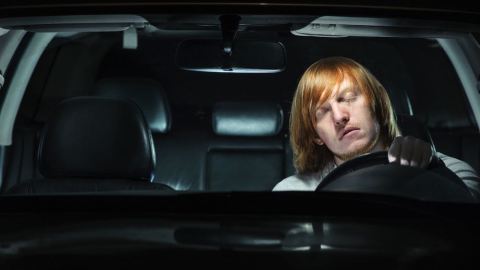Holiday Drivers Beware: Driving Tired Causes Most Accidents

Getting behind the wheel when your tired creates the most likely conditions for a road accident, according to the first study in a decade that examines the effects of fatigue on driving.
Driving while tired is especially dangerous, the study found, when drivers are on the road between 2am and 5am or received fewer than five hours of sleep the night before driving. Other factors that increased the probability of road accidents included a pattern of poor sleeping habits, feelings of anxiety or nervousness, and taking two or more prescription medications in the twenty-four hours prior to driving.
For the study, researchers interviewed 272 French drivers who had been taken to a hospital after creating a traffic accident. The location of the accidents ranged from country roads to city streets to interstate highways. To create a control population, surveys of 272 drivers were conducted at random traffic stops, which are permitted in Europe without the “probable cause/reasonable suspicion” standard required in the U.S.
The current research helps debunk some common misconceptions about the dangers of driving. For example, drivers between the age of 18 and 30 were three-times more likely to have an accident than drivers 51 to 65 years-old. Other findings were more expected, e.g. drivers who did not take a break during long trips were four times more likely to have an accident.
If you feel yourself dozing off at the wheel, pull over immediately and take a rest. Drivers who had a sleep episode while driving were ten-times more likely to end up in a hospital.
Researchers conclude that physicians must be more attentive when their patients complain of sleep disruptions and warn patients about the dangers of getting behind the wheel without a proper night’s rest.
In her Big Think interview, sleep psychologist Shelby Harris explains how the modern world necessitates adjusting your circadian rhythm to the modern world, which no longer obeys the natural cue of sunrise and sunset:
Read more at PLOS One
Photo credit: Shutterstock





